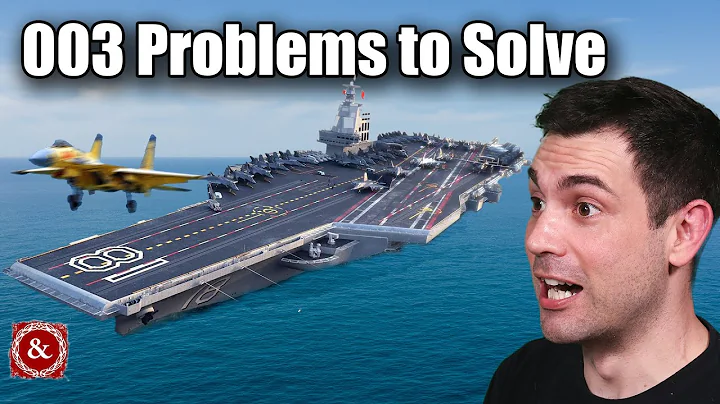The changes in the international structure brought about by China's peaceful rise have made the United States increasingly concerned about competition with China. In order to curb China's development, the US military returned to the Asia-Pacific and launched an Indo-Pacific strategy. The Indo-Pacific region has become the focus of US military deployment. Currently, the US military is consolidating existing military bases in the Indo-Pacific region while restarting or building new bases. However, with the launch of the 003 aircraft carrier and the entry into service of the J-20 stealth fighter and the 0.55 million-ton large-scale drive in batches, China's military strength is no longer what it used to be. If the US military wants to use force to confront China head-on, then The cost would be too high and there would be no advantage at all.

Unable to rely on force, the US military began to try soft means. According to US media reports, at a hearing of the U.S. Senate Armed Services Subcommittee, leaders of the U.S. special operations community proposed using language skills as a soft means to counter China, emphasizing the importance and necessity of special operators being proficient in foreign languages. U.S. special operations forces hope to use the soft skill of language to counter China's influence in the Indo-Pacific region.

At the hearing, Gen. Jonathan Braga, commander of U.S. Army Special Operations Command, said the forces under his command, which include Army Special Forces, civil affairs and psychological operations teams, are arguably the most proficient in language skills among U.S. Special Forces The unit. General Braga said that these special units continue to train in language skills and conduct special training for specific areas, so that these units can be consistent with the language skills of those specific areas. Despite efforts to develop language skills, members of the U.S. special operations community are not guaranteed to be proficient in every country's language.

Braga said U.S. special operators are located around the world and can deploy to more than 60 countries at any given time, where they can conduct special operations or participate in deterrence missions, or they can train and support local forces. Armed groups supporting the United States. Sometimes, language interoperability is more important than directly providing them with weapons and equipment.

Former U.S. Army Special Forces officer Lino Miani said that humans communicate through body language, chemical reactions and words. It is the combination of these three that allows people from different regions to establish connections during war. Ground forces, especially special operations forces who often operate deep behind enemy lines or are easily isolated, when they perform combat missions in different countries, being able to use the language of that country proficiently will help them complete their missions, and able to survive better.

The U.S. military has been in Afghanistan and Iraq for more than ten years. Whenever the U.S. military rotates in these countries, they always have to intensively study the local language and undergo a week-long intensive language learning course. In just one week, they have to learn some simple local language, such as "raise your hands", "stop", "hello", etc., and learn some local dialects and slang when necessary. The US military will find local people employed by the US military for language training.

In Iraq and Afghanistan, when the U.S. military was performing missions, many local people were misunderstood by both sides because they did not understand the commands such as "stop" and "raise your hands" given by the U.S. military in English, which resulted in manslaughter. sparking conflicts with locals. In the battle of Fallujah that year, the U.S. military fought almost all locals in the entire city of Fallujah. The U.S. Marines suffered heavy losses in the street fighting. After the battle, the US military increased the number of local translators, consciously understanding the local culture and customs, and increasing communication with the locals.

Marsan, a U.S. Navy Marine who served in Iraq, said: "If you use some simple greetings to greet them locally, they will be happy and surprised, which will invisibly bring the distance between the two parties closer. Maybe he will even like you, an American soldier.When you ask an Iraqi which tribe he belongs to in local language, he will regard you as an expert who understands Iraq and will be less hostile to you. "

The US military has hundreds of military bases in other countries around the world. If the US military stationed in these countries can master the language of the country proficiently, it will help the US military integrate into the local environment.

At the hearing, the Navy Major General James Green, commander of the Marine Corps Special Operations Command, said that his command has shifted its focus to the Indo-Pacific region and learned the languages of some important countries in the Indo-Pacific region, including Chinese Mandarin . He said that the US military should be proficient in Chinese. Although the use of Chinese is limited in those countries where U.S. special operators often work, familiarity with the opponent's language and culture is important for our future actions. The Chinese-American joined the U.S. Marine Corps and became a second lieutenant platoon leader of the 1st Marine Division. His joining shocked other U.S. soldiers and doubted their loyalty. On the Korean battlefield, Lu Chaoran's unit encountered the volunteers. When the battle was unfavorable, he shouted to the Volunteers several times, "Don't shoot, I am Chinese." After hearing the Chinese, the Volunteers hesitated. It was this short hesitation that bought the U.S. Army time to fight back, and the Volunteers also. So the losses are not small. This is the role of language skills in war.

American experts say that war is a complex task and simply being stronger than the enemy is not always enough. Although China is very influential in the Asia-Pacific. , but trying to contain China will depend more on our mastery of other countries' languages, which will help us understand potential allies, such as Korean , Thai , Indonesian or Tagalog Language , etc. In fact, the Indo-Pacific strategy of the United States is to curb China's development by wooing other countries in the Indo-Pacific. If you want to better woo other countries, you need to use the country's language skills and skills. Those relationships that are maintained are extremely important in great power competition, whether the United States is trying to maintain deterrence or fight an all-out war
.




















